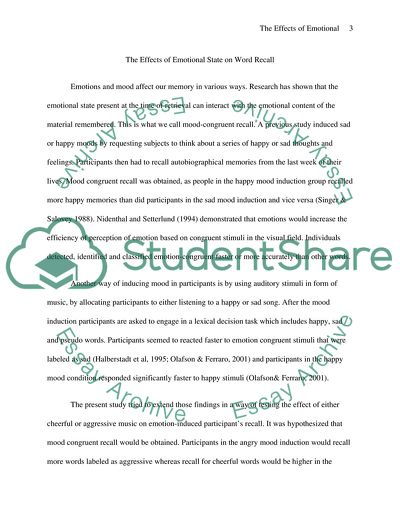Cite this document
(The Effects of Emotional State on Word Recall Research Paper, n.d.)
The Effects of Emotional State on Word Recall Research Paper. https://studentshare.org/psychology/1720146-psychology-raport
The Effects of Emotional State on Word Recall Research Paper. https://studentshare.org/psychology/1720146-psychology-raport
(The Effects of Emotional State on Word Recall Research Paper)
The Effects of Emotional State on Word Recall Research Paper. https://studentshare.org/psychology/1720146-psychology-raport.
The Effects of Emotional State on Word Recall Research Paper. https://studentshare.org/psychology/1720146-psychology-raport.
“The Effects of Emotional State on Word Recall Research Paper”. https://studentshare.org/psychology/1720146-psychology-raport.


